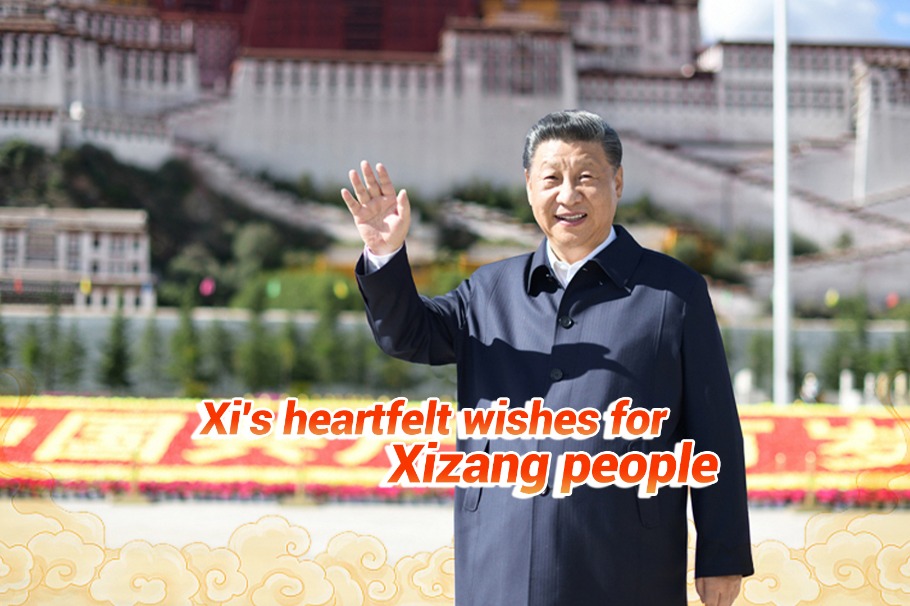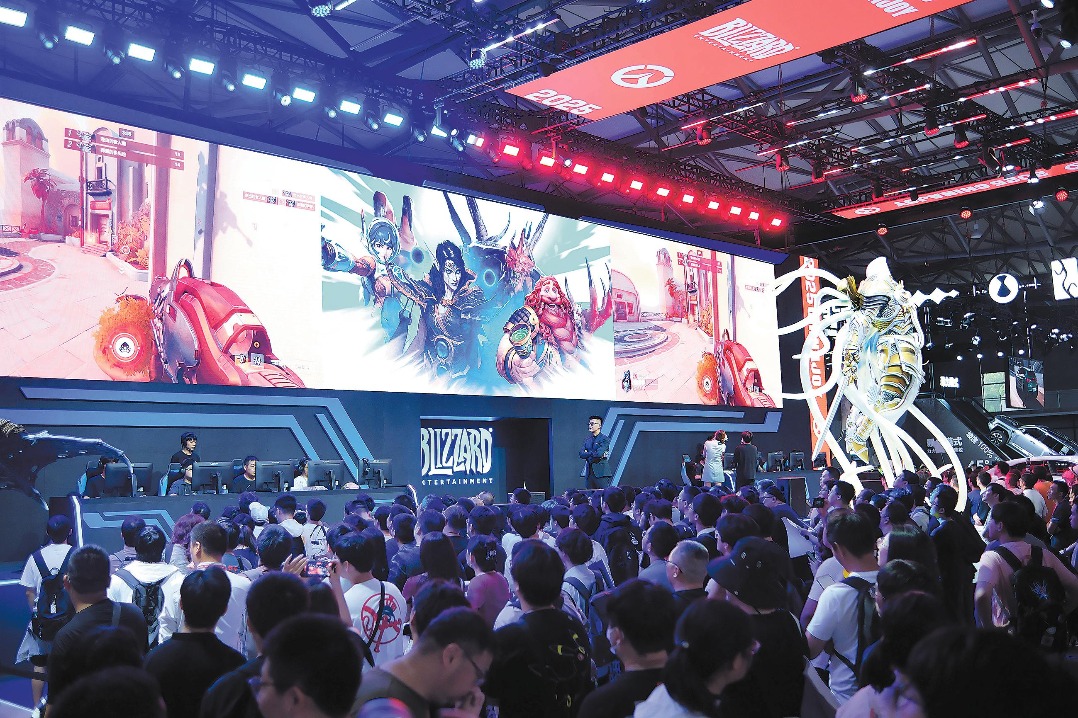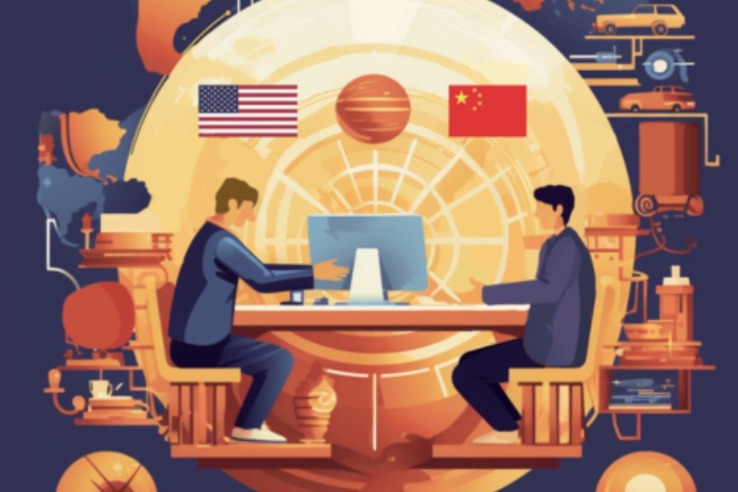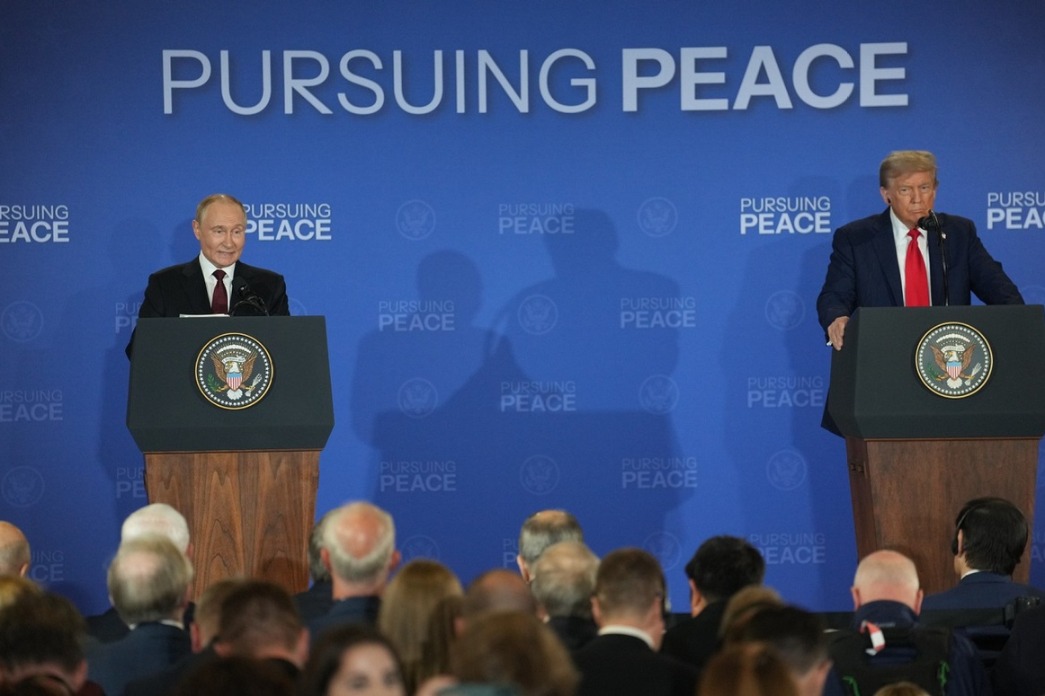Future tech competition
US chip strategy is shifting, focusing on market presence, not just technical superiority, as the determinant of global leadership


In May, the US Department of Commerce rescinded the Joe Biden administration's artificial intelligence diffusion rule and introduced a new set of guidelines. These new rules explicitly state that using Huawei's Ascend series AI chips anywhere in the world may violate US export control regulations. Behind this move lies a deeper shift in the United States' strategic thinking on technological competition with China and, more broadly, on the trajectory of US high-tech policy.
The Biden administration's tech strategy, built around the concept of "small yard, high fences", focused heavily on preventing China from gaining access to cutting-edge semiconductor technologies.
As early as August 2022, Biden signed into law the CHIPS and Science Act, which broadly banned the export of high-end chips and related semiconductor products made by the US and its allies to China. Biden then restricted the export of Nvidia's A100 and H100 GPUs — critical for training large AI models — to China and certain Chinese entities.
In 2023, the Biden administration introduced more stringent rules on advanced US chip exports to China and pressured key allies such as Japan and the Netherlands to block China's access to advanced lithography machines and semiconductor manufacturing equipment. The AI diffusion rule went a step further by introducing limits on total compute capacity, in an attempt to prevent China from indirectly acquiring US technologies through third countries or cloud platforms.
However, in practice, these tech restrictions have failed to stop China's breakthroughs in advanced semiconductors and AI. Instead, they have dealt a heavy blow to the global market share of US tech companies and sparked a backlash from US industry leaders.
On the one hand, Chinese AI models have risen rapidly. Early this year, DeepSeek released its R1 model, which significantly reduces the compute requirements for large AI models through optimized algorithms and hardware configurations. A wave of low-cost, high-efficiency open-source Chinese models has emerged, demonstrating that US export restrictions cannot prevent China's technological rise. In some cases, they have even pushed Chinese companies toward technological self-reliance and industrial upgrading.
On the other hand, tech giants such as Nvidia and Oracle have voiced concern that the Biden administration's restrictions are effectively handing the market over to China, forcing global customers to seek alternative technologies, therefore shrinking the global footprint of US companies and weakening the competitiveness of US products. Nvidia CEO Jensen Huang, Tesla CEO Elon Musk and former Google CEO Eric Schmidt have repeatedly warned that the US should maintain leadership by keeping markets open, shaping global standards and building ecosystem control, not by closing itself off. Jensen Huang, in particular, has emphasized that export controls hurt both Nvidia and the US, because with or without Nvidia chips, China will continue to move forward and accelerate the development of its chips.
It is against this backdrop that the US has begun reassessing its approach, trying to strike a balance between maintaining technological leadership and protecting commercial interests. The Donald Trump administration has now proposed a new strategy: shifting from a narrow focus on a technology blockade to a broader plan for dominating global markets.
In May, the Trump administration rescinded the AI diffusion rule that was set to take effect on May 15, criticizing the Biden-era rule as overly burdensome and innovation-killing. At the same time, the Department of Commerce issued new guidance warning that using US-made AI chips for training or running Chinese AI models could have legal consequences. It also explicitly stated that using Huawei's Ascend chips could violate US export controls, marking the first time that the US has officially named and banned the use of Huawei's advanced chips. This signals a shift in US regulatory thinking — from merely cutting off China's access to technology at the source, to also shaping the rules of the global supply chain and international markets. The goal is to help US products dominate the market and set the standards, while limiting and delaying the adoption of Chinese chips globally.
Notably, US President Trump's trip to the Middle East in May concluded with large-scale AI chip supply deals with Gulf nations — a key step in building a US-centered AI ecosystem in the region. The deals include exporting 18,000 of Nvidia's cutting-edge Blackwell chips to Saudi Arabia's sovereign wealth fund-backed AI company Humain, and helping the company build AI training data centers. The US also plans to allow the United Arab Emirates to import up to 500,000 Nvidia H100 GPUs annually, with companies such as G42 receiving a major share.
These deals not only meet the AI development needs of Middle Eastern countries but also strategically bind their capital to US technology, discouraging investment in Chinese alternatives. By exporting US technology and cloud services to the region, the US is seeking to strengthen its grip on the AI supply chain and ensure that its strategic position is not weakened.
In short, the US is shifting from a strategy focused on technological blockade and total control to one centered on market competition and standard-setting. The new approach seeks to promote US products and technologies where risks can be managed to contain the growth of China's high-tech sector.
This evolving strategy emphasizes leveraging the US' current tech lead to secure early dominance in emerging, still-unsaturated markets. By supplying chips, computing power, models and development frameworks, the US aims to create global dependencies, thus consolidating its leadership through market reach and standard-setting.
From this perspective, the future of tech competition will not hinge solely on who has the most advanced technology, but on who can bring products to the global market faster, who can shape the rules of the game, and who can define the structure of the industry.
Huang Jing is a distinguished professor at Shanghai International Studies University. Guo Haoning is a research fellow at Transcend Consulting. The authors contributed this article to China Watch, a think tank powered by China Daily.
The views do not necessarily reflect those of China Daily.

































